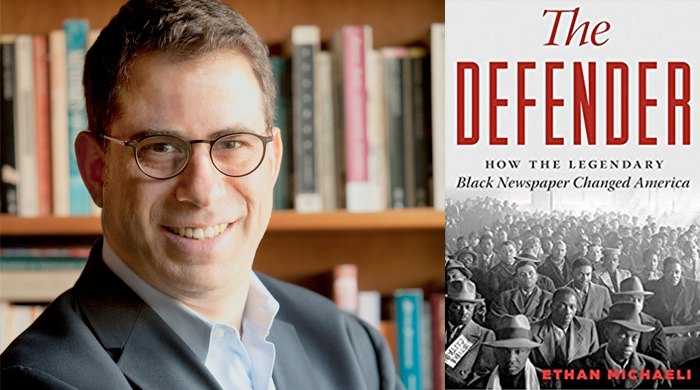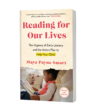A recent visit to Chicago for BookExpo America transported me back to 2005, when I visited the offices of historic black newspaper The Chicago Defender. At the time, I was a grad student at Northwestern University’s Medill School of Journalism, visiting to interview then-editor Roland Martin about his plans for reviving the paper at its 100th anniversary.
Martin peered over a sleek silver laptop, surrounded by books and papers, and opined in an authoritative staccato about newspaper lifecycles and the coming convergence of print, radio, television and web media.
With his signature mix of substance and swagger, Martin recast the 18,000-circulation daily — known at that point for delivering yesterday’s news tomorrow — as a formidable American brand on the cusp of ascent.
Drawing inspiration from the resurgence of the Washington Post, he said: “Papers evolve. When the Washington Post was purchased in 1933 for $850,000 out of bankruptcy, it was the worst of the five daily papers in Washington. They operated in a rat-infested building. The quality sucked. The paper was losing money. Look at the Washington Post today.”
For a moment, I was sold. As I observed him that day, he backed up his pronouncements with a blur of news production and promotion that blew the dust off the nearly vacant newsroom. He whipped together his own stories and podcasts, while also tightening copy from one full-time writer and assorted stringers. It was an admirable, if ill-fated and underfunded, attempt to make the publication influential again.
Martin’s ample hustle and his launch of the paper’s first website were rewarded with buzz and modest profitability at the Defender — and better career opportunities elsewhere for himself. Editor & Publisher credited him with weeding “a newshole that an overworked staff routinely filed with credulous stories based on press releases sent by anybody, including political cranks and sales hustlers.” Today he continues to distribute black news through black-owned media as the host of News One on cable network TV One.
I left The Defender that day impressed with Martin’s energy, but sad about the years-long decline of the legendary paper that had spurred the Great Migration, swayed presidential elections, and catapulted its publisher Robert Abbott from pauper to millionaire.
I wondered how the publication had overcome similarly meager resources and staffing in its founding years to grow in quality and influence over time. I questioned whether a resurrection was possible for the paper in our times. I believed something important had been lost in black communities when black-owned media faltered and yearned to know more about this leading publication.
Fast forward 10 years and four editors. A new history of the paper and the colorful characters who produced it has emerged to address those questions and many more. “The Defender: How the Legendary Black Newspaper Changed America” by Ethan Michaeli combines deep research and respect to create a sweeping 100+ year account of the publication.
Worthy of great attention and acclaim, Michaeli’s chronicle of a century’s worth of Defender reporters and columnists at work illuminates how and why black news media advanced American civil rights. Moreover, it offers vivid examples of activists decrying lynching, segregation, and degradation at times when their views were far from popular, accepted or safe.
I had the privilege of interviewing Michaeli for Kirkus Reviews to learn about the inspiration for the book and the impact he hopes it will make. Read about the discussion here to:
- Discover the powerful words of Frederick Douglass that influenced The Defender’s founding philosophy
- Understand why Michaeli characterizes The Defender as an African-American–owned newspaper that works for an integrated country
- Get a glimpse of Michaeli’s education as a white reporter at a black publication
- Find out whether Michaeli is optimistic about the dismantling of racism in America
Then dive into the full book to gain a new appreciation for the ways The Defender shaped Chicago–and the nation. If feeling inspired, consider buying a subscription. The Defender continues its recent legacy of covering local news and advocating for social justice with more vision and passion than resources or reach. (A New York Times piece estimated that it had 5,000 print subscribers and 50,000 registered readers online with roughly 16,000 copies sold on newsstands, for $1 each, or distributed free.)
If this post resonates with you, I bet you’ll enjoy my newsletter. I regularly send bookish news and notes out to more than 1,000 readers. Sign up here.


